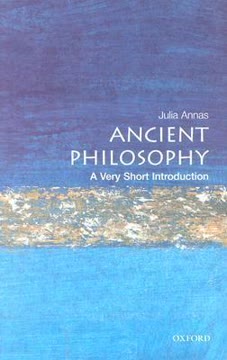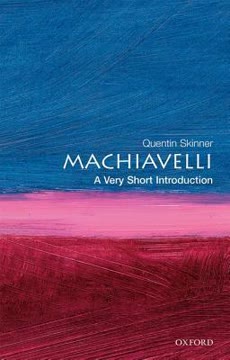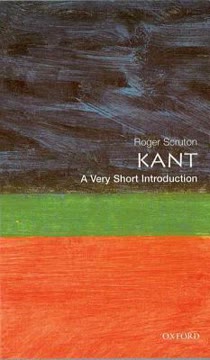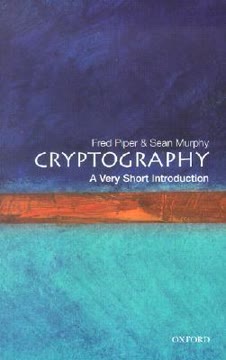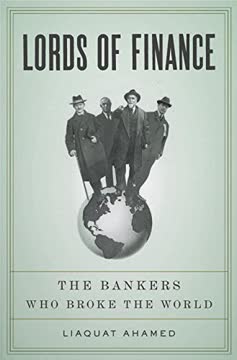Key Takeaways
1. חייו של מקיאוולי כדיפלומט ועיצוב הפילוסופיה הפוליטית שלו
מקיאוולי היה מוקסם לראות כיצד יוליוס יתמודד עם הדילמה שנוצרה מנוכחות הדוכס בחצר האפיפיורית.
ניסיון דיפלומטי. הקריירה של מקיאוולי כדיפלומט חשפה אותו למורכבויות של פוליטיקה של כוח וממשל מדיני. הוא היה עד במו עיניו לפעולותיהם של מנהיגים משפיעים כמו צ'זארה בורג'ה, האפיפיור יוליוס השני והקיסר מקסימיליאן, מה שסיפק לו תובנות יקרות ערך על טבע הכוח הפוליטי והמנהיגות.
לקחים שנלמדו. דרך משימותיו הדיפלומטיות פיתח מקיאוולי את רעיונותיו המרכזיים בנוגע ל:
- חשיבות הגמישות והסתגלות בפוליטיקה
- תפקיד המזל והמעלה בהשגת הצלחה
- הצורך של מנהיגים לפעמים לפעול בניגוד למוסר המקובל
- הערך בשמירה על מראית עין וניהול התפיסה הציבורית
תצפיות אלו היוו את הבסיס לכתביו הפוליטיים המאוחרים, ביניהם "הנסיך" ו"הנאומים על ליווי", ועיצבו את גישתו הריאליסטית, לעיתים צינית, לפוליטיקה.
2. הנסיך: מדריך מהפכני לכוח וממשל
המוסר ברור: אם אדם רוצה להשיג תהילה וגדולה, עליו להיות חכם דיו כדי להתאים את עצמו לזמנים.
שבירת המסורת. "הנסיך" סימן פריצת דרך רדיקלית במחשבה הפוליטית המסורתית. מקיאוולי דחה את האידיאליזם בנוגע לאופן שבו שליטים צריכים להתנהג, והתמקד במקום זאת בעצות מעשיות לשימור הכוח בעולם עוין.
עקרונות מרכזיים:
- להעדיף יעילות על פני שיקולים מוסריים
- לטפח מוניטין של חוזק ונחישות
- להיות מוכן להשתמש בכוח ותחבולה לפי הצורך
- לשמור על מראית עין של מעלה, תוך מוכנות לפעול בניגוד לה
יצירתו של מקיאוולי זעזעה את בני דורו בשל הדיון הפתוח במציאות הפוליטית וההתעלמות לכאורה מאתיקה נוצרית. עם זאת, היא נותרה טקסט יסודי בפילוסופיה הפוליטית והשפיעה על מנהיגים והוגים במשך מאות שנים.
3. וירטו: אבן היסוד של מנהיגות מקיאוולית
וירטו מציינת במדויק את האיכות הנדרשת של גמישות מוסרית בנסיך: 'עליו להיות מוכן לשנות את התנהגותו ככל שהרוחות של המזל והנסיבות המשתנות מאלצות אותו'.
הגדרה מחודשת של מעלה. מושג הוירטו של מקיאוולי שונה במידה ניכרת מההבנה המסורתית של מעלה מוסרית. בעיניו, וירטו כוללת את התכונות המאפשרות למנהיג להשיג ולשמר כוח, ללא קשר להשלכות המוסריות.
רכיבי הוירטו:
- הסתגלות לנסיבות משתנות
- נכונות לפעול בנחישות ולעיתים באכזריות
- מיומנות בניהול התפיסה הציבורית
- יכולת לאזן בין כוח לתחבולה
- העדפת תוצאות מעשיות על פני שיקולים מוסריים
עבור מקיאוולי, מנהיג עם וירטו הוא זה שיודע לנווט בעולם הפוליטי המורכב והמסוכן, תוך שימוש בכל האמצעים הדרושים להשגת מטרותיו ולשימור כוחו. מושג זה ממשיך להיות שנוי במחלוקת אך בעל השפעה במחשבה הפוליטית המודרנית.
4. תפקיד המזל בהצלחה פוליטית וחשיבות ההסתגלות
המזל הוא אישה, ואם רוצים לשלוט בה, יש לנהוג בה בחומרה.
מזל מול רצון חופשי. מקיאוולי רואה בהצלחה הפוליטית תוצאה של שילוב בין מזל (מקרה או גורל) לבין וירטו (כישרון ויכולת). למרות שהוא מכיר בתפקיד המשמעותי של המזל, הוא טוען שמנהיגים מיומנים יכולים להשפיע ואף לשלוט בגורלם במידה רבה.
הסתגלות לנסיבות:
- מנהיגים חייבים להיות גמישים ולהתאים את גישתם לפי הצורך
- דבקות נוקשה באסטרטגיה או בקוד מוסרי אחד מובילה לעיתים לכישלון
- ההצלחה נובעת מהכרת ההזדמנויות שהמזל מציג ותפיסתן באמצעות וירטו
המשל של מקיאוולי על המזל כאישה שיש לדכא משקף את אמונתו שפעולה יזומה ולעיתים אגרסיבית היא הכרחית להתגבר על תהפוכות המזל. השקפה זו מדגישה את חשיבות ההסתגלות והניצול ההזדמנויות במנהיגות פוליטית.
5. הנאומים: חזונו של מקיאוולי לממשל רפובליקני
הניסיון מראה כי ערים מעולם לא גדלו בשלטון או בעושר אלא כאשר היו חופשיות.
אידיאלים רפובליקניים. ב"הנאומים על ליווי" חוקר מקיאוולי את עקרונות הממשל הרפובליקני המוצלח, תוך שימוש ברומא העתיקה כדוגמה מרכזית. הוא טוען שמערכות רפובליקניות, כאשר הן בנויים כראוי, יכולות להשיג יציבות והצלחה רבה יותר ממדינות נסיכות.
מרכיבים מרכזיים של רפובליקה מוצלחת:
- חוקה מעורבת שמאזנת בין אינטרסים של האצולה והעם
- מעלה אזרחית חזקה בקרב האזרחים
- חוקים ומוסדות יעילים למניעת שחיתות
- מיליציות אזרחיות במקום צבאות שכירים
- שליטה בסכסוכים פוליטיים כמקור כוח וחדשנות
הניתוח של מקיאוולי ב"הנאומים" מציג מבט מורכב ומדוד יותר על הפוליטיקה מאשר "הנסיך", ומדגיש את חשיבות ההשתתפות העממית והבלמים המוסדיים על הכוח. יצירה זו השפיעה רבות על התפתחות המחשבה הרפובליקנית והדמוקרטית המודרנית.
6. השחיתות כאיום הגדול ביותר על יציבות וחירות פוליטית
כאשר מדובר בביטחון המדינה, אין מקום לשיקולים של צדק או עוול, רחמים או אכזריות, שבח או בושה; יש להניח כל היסוס בצד ולפעול בכל האמצעים להצלת חייה ושמירת חירותה.
סכנות השחיתות. מקיאוולי מזהה את השחיתות כאיום המרכזי על יציבות הפוליטית והחירות. הוא טוען שכאשר אזרחים ומנהיגים מעדיפים אינטרסים אישיים או סקטוריאליים על פני טובת הכלל, יסודות המדינה מתערערים.
הופעות ותוצאות של שחיתות:
- שחיקת המעלה האזרחית והרוח הציבורית
- מניפולציה של חוקים ומוסדות לטובת אינטרסים אישיים
- עליית סקטוריאליזם וסכסוכים פנימיים
- החלשת היכולות הצבאיות
- פגיעות לאיומים חיצוניים ואובדן עצמאות
כדי להיאבק בשחיתות, מקיאוולי קורא לחוקים חזקים, מוסדות המעודדים מעלה אזרחית ומנהיגים הנכונים לנקוט בפעולות החלטיות (לעיתים קשות) לשמירת שלמות המדינה. גישתו לשחיתות רלוונטית גם לניתוחים של מערכות פוליטיות מודרניות ואתגריהן.
7. אמנות המלחמה וחשיבות צבאות אזרחיים
נסיך חכם יימנע תמיד משימוש בכוחות שכירים ויקים צבאות המורכבים מאנשיו שלו.
כוח צבאי ויציבות פוליטית. מקיאוולי מדגיש את הקשר ההכרחי בין עוצמה צבאית להצלחה פוליטית. הוא טוען שהסתמכות על כוחות שכירים או עזר היא מסוכנת ולא אמינה, וממליץ במקום זאת על מיליציות אזרחיות.
יתרונות צבאות אזרחיים:
- נאמנות ומחויבות גבוהה יותר למדינה
- יעילות צבאית משופרת בזכות מעלה אזרחית
- סיכון מופחת להפיכה צבאית או לבגידה
- חיזוק הקשר בין העם למדינה
רעיונותיו של מקיאוולי בנוגע לארגון צבאי היו מהפכניים לזמנו, ואתגרו את השימוש הנפוץ בכוחות שכירים. הדגש על השתתפות אזרחית בהגנה משקף את אמונתו הרחבה בחשיבות המעורבות האזרחית לבריאות המדינה.
8. גישתו של מקיאוולי להיסטוריה: ללמוד מהעבר לעיצוב העתיד
במקום לספר סיפור ש"מדליק רוח חופשית לחיקוי", הוא מקווה "להדליק רוח כזו שתמנע ותסלק את העוולות הנוכחיות".
היסטוריה כמורה. מקיאוולי רואה בהיסטוריה לא רק כרוניקה של אירועים עבריים, אלא כמקור ללימוד מעשי לפוליטיקה עכשווית. הוא טוען שבלימוד הצלחות וכישלונות היסטוריים יכולים מנהיגים לגזור עקרונות לממשל יעיל.
היבטים מרכזיים בגישתו ההיסטורית:
- התמקדות בלימוד מעשי במקום בדמויות מוסריות
- ניתוח הצלחות וכישלונות להפקת עקרונות שימושיים
- הדגשה של הבנת הסיבות העמוקות לאירועים היסטוריים
- יישום התובנות ההיסטוריות לאתגרים פוליטיים עכשוויים
בספרו "היסטוריית פירנצה" מקיאוולי עוזב את הגישה המסורתית של שבח היסטורי, ומשתמש בניתוח היסטורי לביקורת על כישלונות פוליטיים עכשוויים. גישה פרגמטית זו להיסטוריה כמדריך לפעולה פוליטית השפיעה רבות על המחקר ההיסטורי והתיאוריה הפוליטית.
Last updated:
FAQ
What's "Machiavelli: A Very Short Introduction" about?
- Overview of Machiavelli: The book provides a concise introduction to the life and works of Niccolò Machiavelli, focusing on his political theories and historical context.
- Key Works Discussed: It covers Machiavelli's most famous works, including "The Prince" and "Discourses on Livy," and explores their impact on political thought.
- Historical Context: The book situates Machiavelli within the political and intellectual landscape of Renaissance Italy, highlighting his role as a diplomat and political theorist.
- Themes and Ideas: It delves into Machiavelli's ideas on power, statecraft, and human nature, examining how these concepts have influenced modern political theory.
Why should I read "Machiavelli: A Very Short Introduction"?
- Comprehensive Introduction: The book offers a thorough yet accessible overview of Machiavelli's life and ideas, making it ideal for newcomers to his work.
- Understanding Political Theory: It provides insights into the foundations of modern political thought, particularly the concepts of power and governance.
- Historical Insight: Readers gain a deeper understanding of the political dynamics of Renaissance Italy and how they shaped Machiavelli's theories.
- Influence on Modern Politics: The book highlights Machiavelli's lasting impact on political philosophy and his relevance to contemporary discussions on leadership and ethics.
What are the key takeaways of "Machiavelli: A Very Short Introduction"?
- Power and Virtú: Machiavelli emphasizes the importance of virtú, a combination of strength, cunning, and pragmatism, in effective leadership.
- Role of Fortune: He discusses the interplay between fortune and human agency, suggesting that while fortune influences events, leaders can shape outcomes through virtú.
- Realpolitik Approach: Machiavelli advocates for a realistic approach to politics, where moral considerations are secondary to the maintenance of power and stability.
- Historical Lessons: The book underscores the value of learning from history to understand political dynamics and avoid past mistakes.
How does Quentin Skinner interpret Machiavelli's concept of virtú?
- Definition of Virtú: Skinner explains virtú as a set of qualities that enable leaders to achieve and maintain power, including decisiveness, adaptability, and strategic thinking.
- Moral Flexibility: Machiavelli's virtú involves a willingness to act immorally when necessary to secure the state, challenging traditional moral values.
- Contrast with Classical Virtues: Unlike classical virtues, which emphasize moral integrity, Machiavelli's virtú is pragmatic and results-oriented.
- Application in Leadership: Skinner highlights how virtú is crucial for leaders to navigate the complexities of political life and respond effectively to changing circumstances.
What is Machiavelli's view on the role of fortune in politics?
- Fortune's Influence: Machiavelli acknowledges that fortune plays a significant role in political success, but it is not the sole determinant.
- Balancing Fortune and Virtú: He argues that while fortune can create opportunities, leaders must possess virtú to capitalize on them and mitigate risks.
- Fortune as a Woman: Machiavelli famously describes fortune as a woman who favors bold and aggressive leaders, suggesting that assertiveness can sway fortune's favor.
- Limits of Fortune: Ultimately, Machiavelli believes that human agency, through virtú, can shape events and counteract the unpredictability of fortune.
How does "Machiavelli: A Very Short Introduction" address Machiavelli's reputation as a "teacher of evil"?
- Misinterpretation of Machiavelli: Skinner argues that Machiavelli's reputation as a proponent of evil is a misunderstanding of his pragmatic approach to politics.
- Focus on Realism: Machiavelli's advice is grounded in realism, emphasizing the necessity of sometimes unethical actions to maintain power and stability.
- Contextual Understanding: The book places Machiavelli's ideas within the context of Renaissance Italy, where political instability required pragmatic solutions.
- Legacy and Impact: Despite his controversial reputation, Machiavelli's work has profoundly influenced political thought, highlighting the complexities of leadership and ethics.
What are the best quotes from "Machiavelli: A Very Short Introduction" and what do they mean?
- "Fortune is a woman": This quote encapsulates Machiavelli's view that fortune favors bold and assertive leaders, emphasizing the need for decisive action.
- "The ends justify the means": Although not a direct quote, this idea reflects Machiavelli's belief that achieving political stability may require morally questionable actions.
- "It is better to be feared than loved": Machiavelli argues that fear is a more reliable means of maintaining power than love, as it ensures obedience and control.
- "A prince must be a fox to recognize traps, and a lion to frighten wolves": This metaphor highlights the dual nature of effective leadership, combining cunning with strength.
How does Quentin Skinner explore Machiavelli's influence on modern political thought?
- Foundations of Realpolitik: Skinner discusses how Machiavelli's ideas laid the groundwork for realpolitik, emphasizing pragmatic and strategic approaches to governance.
- Impact on Political Philosophy: The book examines Machiavelli's influence on later political theorists, including Hobbes and Rousseau, who grappled with similar themes of power and authority.
- Relevance to Contemporary Politics: Skinner highlights how Machiavelli's insights into power dynamics and human nature continue to inform modern political discourse and leadership strategies.
- Critiques and Adaptations: The book explores how Machiavelli's work has been both criticized and adapted by various political movements, reflecting its enduring significance.
What is Machiavelli's perspective on the relationship between ethics and politics?
- Separation of Ethics and Politics: Machiavelli argues that political leaders must prioritize the stability and security of the state over traditional moral values.
- Necessity of Immorality: He suggests that rulers may need to engage in immoral actions to achieve political goals, challenging the notion that ethics and politics are inherently linked.
- Pragmatic Approach: Machiavelli's perspective is rooted in pragmatism, advocating for actions that ensure the survival and success of the state, regardless of ethical considerations.
- Critique of Idealism: He critiques idealistic views of politics that prioritize moral integrity, arguing that such approaches are often impractical and ineffective in the real world.
How does "Machiavelli: A Very Short Introduction" address the historical context of Machiavelli's work?
- Renaissance Italy: The book situates Machiavelli within the turbulent political landscape of Renaissance Italy, marked by city-state rivalries and foreign invasions.
- Florentine Politics: It explores Machiavelli's role as a diplomat and political advisor in Florence, highlighting how his experiences shaped his views on power and governance.
- Influence of Classical Thought: Skinner discusses the impact of classical Roman and Greek ideas on Machiavelli's work, particularly in his emphasis on virtú and the role of history.
- Response to Political Instability: Machiavelli's theories are presented as a response to the political instability of his time, offering practical solutions for maintaining power and order.
What lessons does Machiavelli draw from Roman history in "Discourses on Livy"?
- Value of Mixed Constitutions: Machiavelli praises the Roman Republic's mixed constitution, which balanced the interests of different social classes and maintained stability.
- Importance of Civic Virtú: He emphasizes the role of civic virtú in Rome's success, highlighting the need for citizens to prioritize the common good over personal interests.
- Lessons from Roman Leaders: Machiavelli draws lessons from Roman leaders like Romulus and Camillus, who exemplified the qualities of effective leadership and virtú.
- Warnings Against Corruption: He warns against the dangers of corruption and factionalism, which can undermine the stability and greatness of a republic.
How does Quentin Skinner interpret Machiavelli's views on leadership and statecraft?
- Pragmatic Leadership: Skinner interprets Machiavelli's views as advocating for pragmatic leadership, where rulers must be adaptable and willing to make difficult decisions.
- Balance of Fear and Love: Machiavelli's advice to balance fear and love in leadership is seen as a strategy to maintain control and ensure loyalty.
- Role of Deception: Skinner highlights Machiavelli's belief in the necessity of deception and cunning in statecraft, as leaders must navigate complex political landscapes.
- Focus on Outcomes: Machiavelli's emphasis on outcomes over intentions is interpreted as a call for leaders to prioritize the success and stability of the state above all else.
Review Summary
מכיאוולי: מבוא קצרצר זוכה בדרך כלל לקבלת פנים חיובית, כאשר הקוראים מעריכים את סקינר על מתן סקירה תמציתית אך מקיפה של חייו, יצירותיו ופילוסופייתו הפוליטית של מכיאוולי. רבים מוצאים בו כלי עזר להבנת ההקשר והרעיונות של מכיאוולי מעבר ל"נסיך" בלבד. חלק מהקוראים מציינים כי הספר מסיר אי-הבנות לגבי מכיאוולי ומעניק תובנות חשובות על יצירותיו הפחות מוכרות. אף שייתכנו מי שיראו בו יבש או ממוקד מדי בפרטים היסטוריים, רובם רואים בו מבוא מצוין למחשבתו והשפעתו של מכיאוולי.
Very Short Introductions Series Series



